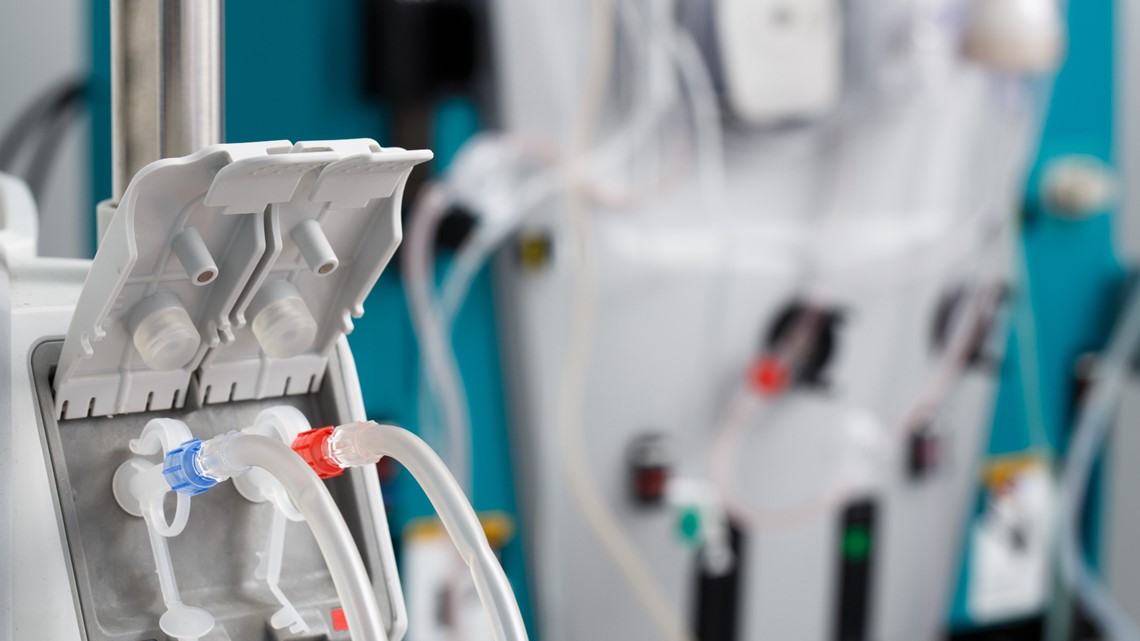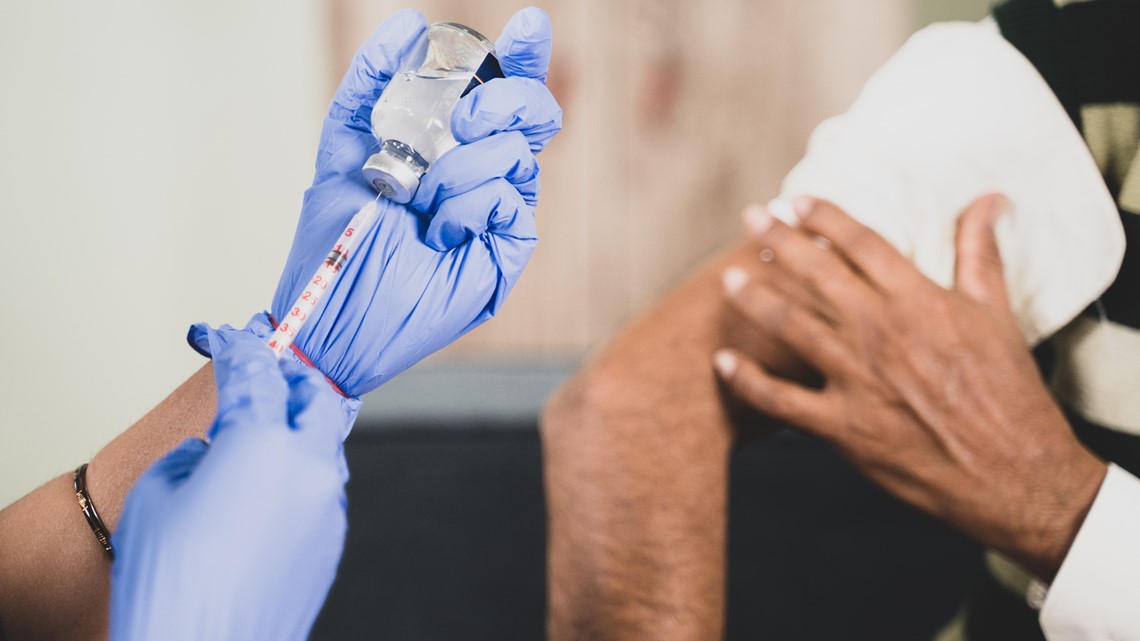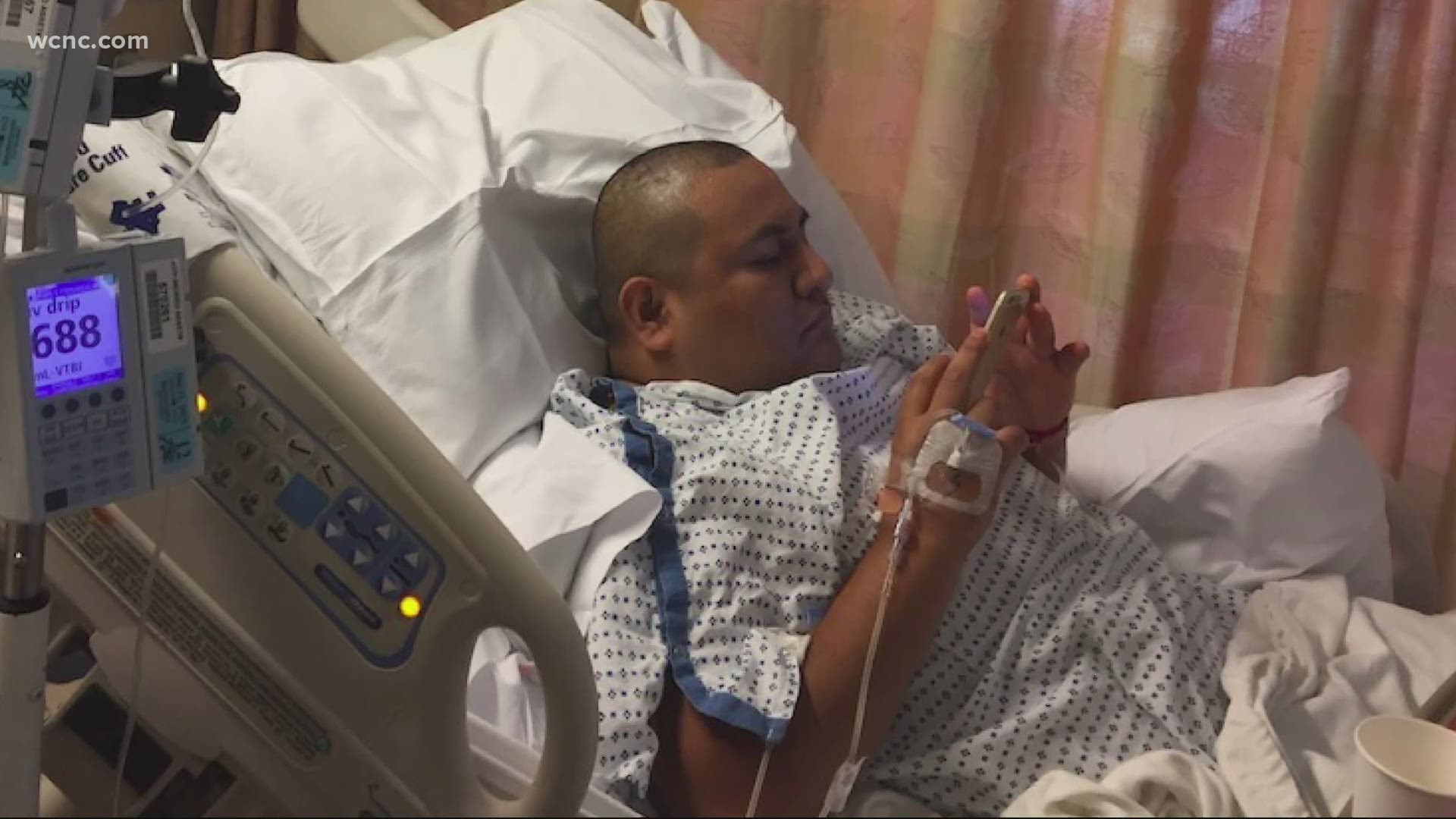CHARLOTTE, N.C. — Dan Hughes, 27, received a donated kidney two years ago. It gave him renewed hope for a long and healthy life, albeit with a compromised immune system because of drugs he now has to take. Then came March 2020 and COVID-19.
Michele Hughes is Dan’s mother, WCNC met her a few weeks ago on a story about people becoming living donors, of which she was one, for others who are on dialysis and need a functioning kidney. Hughes worries about her son and others who are waiting for COVID0-19 shots, because seemingly healthy people considered essential, are being ahead of people with compromised health.


“So, the list of vulnerable populations is fairly inclusive, but before them, goes everyone else who is working,” Hughes said.
The Center for Disease Control lists Dan as Group 1C, but in North Carolina, he’s listed in Group 4. Michele and Dan are both confused and want an answer as to why.
“I would like to know why Governor Cooper and Mandy Cohen have put the most vulnerable after many many thousands of healthly workers,” Hughes said.
The words vulnerable and essential seem to be moving targets. Residents of nursing homes have been getting vaccinated, so have teachers. WCNC reached out to Governor Cooper’s Press Office and NCDHHS for some guidance and answers.
Cooper and NCDHHS are both on record with a comment they made on Feb. 10.
“Vaccine supply limitations continue to impact how fast we can get all North Carolinians vaccinated,” Secretary Cohen said. “Keep doing the 3Ws. Wear a mask, wait 6 feet apart, and wash your hands often. And be sure to visit YourSpotYourShot.nc.gov for accurate information.”
NCDHHS is working with partners to develop operational guidance to support childcare and school staff in accessing vaccines. However, current prevention measures will not change. Schools can and should be providing in-person instruction. Under robust safety measures, all students can be in classrooms, with middle and high school students also following six-feet social distancing protocols.


As of Tuesday, North Carolina has administered more than 1 million first doses of vaccine and more than 1.5 million total doses. North Carolina is expected to receive more doses of vaccine over the coming weeks heading into March. This increase and certainty of advanced knowledge into the supply chain several weeks out have allowed the state to plan to open vaccinations to Group 3. As state officials receive more supply information, additional operational guidance will continue to be provided.
NC DHHS responded to WCNC with this statement from Catie Armstrong, Press Assistant in the Communications Office at NCDHHS.
“People could be vaccinated in various groups based on age (e.g., age 65+ in Group 2), job role (e.g., essential frontline worker in Group 3), living situation (e.g., group home setting in Group 1), and qualifying condition (e.g., high-risk medical conditions in Group 4); and Group 5 will include everyone.
The vaccine prioritization is designed to save lives and prevent spread while vaccine supplies are limited. North Carolina continues to move through vaccination phases by aligning to federal priorities while giving local health departments and hospitals the needed flexibility to move to the next priority group based on vaccine supply and demand. We are aligned with CDC Advisory Committee on Immunization Practices in terms of priority order – phase 1a and phase 1b and 1c.
- ACIP First group 1a is Health Care Workers and LTC staff and residents.
- That now aligns with NCDHHS’s expanded Group 1. Check out the Deeper Dive into Group 1.
- ACIP Second group 1b includes people over 75 and frontline essential workers.
- This aligns with NCDHHS’ groups 2 (those 65+) and group 3 (frontline essential workers). We broke it out into 2 groups as it was a large group. In addition, we did decrease the age to people over 65 to align with updated CDC recommendations as a way to be more equitable as minority populations are underrepresented in older populations, a way to include more people with chronic conditions, and because people over 65 account for 85% of deaths from COVID-19. In addition, frontline essential workers include a population with a high proportion of people with high risk chronic conditions who have a high risk of exposure.
- Check out the Deeper Dives into Group 2 and Group 3.
- ACIP Third group 1c is people 65 and over, people with high risk medical conditions, and other essential workers.
- This aligns with our group 4 and includes people with high risk conditions who do not have a high risk of occupational exposure and anyone who is incarcerated or living in other close group living settings who is not already vaccinated due to age, medical condition or job function. This population includes anyone with conditions that have been identified by the CDC as increasing risk for severe COVID-19 illness. Check out NCDHHS’s Deeper Dive into Group 4.
More information on North Carolina’s vaccine rollout, including deep dives into the prioritization groups, can all be found at YourSpotYourShot.nc.gov.

